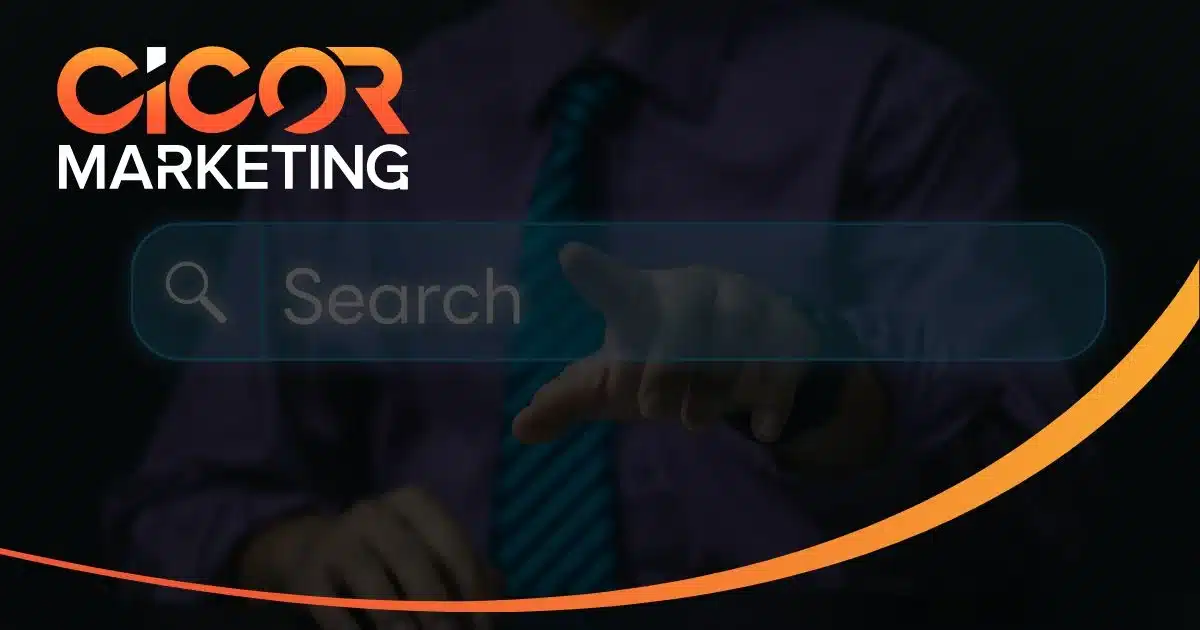Marketing automation streamlines repetitive tasks, enabling businesses to deliver personalized campaigns at scale across email, social media, SMS, and web channels. It automates lead scoring, segmentation, and nurturing while providing real-time performance insights. By freeing teams from manual work, automation improves efficiency, enhances customer experiences, accelerates the sales funnel, and allows marketers to focus on strategic initiatives, driving higher ROI and sustainable growth.
Learn More About
How does marketing automation improve efficiency?

Explore the Latest in Digital Marketing
Discover trends, tips, & strategies
to stay competitive & grow your business
Tampa, FL
100 S Ashley Dr, Ste 600
Naperville, IL
3027 English Rows Ave, Ste 209
Email Our Team
Give Us A Call
CICOR transformed our marketing strategy. From a dated website to SEO that actually ranks, we’ve seen double-digit growth since signing on.
Thank you to CICOR Marketing for always being such a great partner. Their team is friendly, honest, and reliable, which makes working together easy and stress free. It feels like having a trusted mechanic who always tells you the truth and gets the job done right. Tampa Auto Wraps truly appreciates the ongoing support and consistency they bring to every project.
Fantastic to work with and extremely knowledgeable. CICOR Marketing made the entire process easy to understand and stress free. They took my ideas and turned them into a website that looks polished, professional, and truly represents my business. I absolutely love my new website and would gladly recommend their team to others.
Working with CICOR Marketing has been a great experience. They rebuilt our website into something that looks sharp, feels easy to use, and clearly reflects our brand.
Their marketing strategy also helped boost our visibility and engagement in a measurable way. The team is thoughtful, creative, and focused on real results, and we look forward to continuing the partnership.
Thank you once again for your outstanding work and commitment to excellence.
I was searching for help promoting my small business better on the internet/ search engines. I was connected with Chris of CICOR marketing and I was blown away. He is very knowledgeable about websites. From building websites, to getting them the right traffic I was thrilled to have found someone who knew what they were talking about and cared about the client. He also was able to connect me with another resource for driving traffic to my websites aside from just having a strong easy to use website. Highly recommend reaching out to him if you want to see success and growth from your website and business alike.
I have used CICOR Marketing for over 10 years. Once you are with them everything runs so smoothly. Any questions or concerns Chris Vargas the owner is only an email or phone call away. Fantastic service! If you want to concentrate on your business and not to worry about your website CICOR Marketing is the way to go. Thanks CICOR for the incredible run.
The team at CICOR Marketing are amazing! As a business owner, having a great website and top-notch SEO is extremely important. They were very patient and took the time to educate me throughout the process. We now have a beautiful website and a great online presence. I would highly recommend!
I had a great experience working with CICOR Marketing on a new website. My business operates under strict industry marketing rules, and their team understood those requirements right away without needing extra explanation. They made sure everything was compliant, clearly represented my specific area of practice, and still looked polished and professional. Their technical knowledge and attention to detail gave me confidence, and I highly recommend them.
Chris and his Team are the best! Super knowledgeable and GREAT at servicing your websites and SEO production. I am super pleased with the service and I would recommend them to anyone!
CICOR Marketing is the best in the business at what they do. They give honest feedback and always have the customers best interest as top priority.
What I really appreciate about CICOR Marketing is the team’s deep expertise in website development. They understand how all the pieces fit together, like a strong foundation supporting a well built house. Their knowledge brings confidence to the process and makes it clear you are working with professionals who know what they are doing.
CICOR Marketing is the go to for your marketing needs! And I run a lot of companies. That being said, they are the best at what they do and deliver a working product to increase business. Thank you CICOR!
Highly recommend CICOR Marketing. The team exceeded our expectations from start to finish and delivered work that felt thoughtful and professional. Working with them is like having a reliable guide who knows the road ahead and helps you avoid wrong turns. The experience was smooth, clear, and well above what we expected.
Chris and his team created my website a few years ago. It looks great, but what is more impressive is the SEO. I get a new customer from my website every month or two – in my industry, that is spectacular!
CICOR Marketing is a great company that works with local, national, and international businesses, large and small. With many years of experience, Chris is an expert in the field. He and his team can help your business to grow through web design, SEO, brand marketing, and so much more. Let CICOR Marketing collaborate with you, and your business will soar to new heights of success.
Finally, an agency that gets your ideas. CICOR’s local insight and fast execution helped us launch our new brand across multiple channels seamlessly.
I was struggling with advertising and needless coupons until I found CICOR. Now my business has doubled and everyone loves my new website. Best decision I have made.
CICOR Marketing created and manages our business website, and their team is extremely knowledgeable. They consistently keep us informed on current marketing trends and effective ways to improve SEO, and they are always a pleasure to work with. As our business continues to add new services, they are quick to respond to requests for updates or changes. We truly appreciate their reliability, expertise, and ongoing support.
CICOR Marketing is outstanding. They have patiently guided you through everything, providing clear answers and steering you perfectly toward your goals. Highly recommended!
Marketing Services
Corporate Office
- 100 S. Ashley Drive, Ste 600
Tampa, FL 33602 Monday to Friday : 9am – 5pm
Additional Links
Additional Marketing Services
© 2012 - 2026 • All Rights Reserved • Site Design & SEO by CICOR Marketing
Services
Advanced Marketing Tools
Corporate Office
- 100 S. Ashley Drive, Ste 600
Tampa, FL 33602 Monday to Friday : 9 am – 5 pm
© 2012 - 2026 • All Rights Reserved • Site Design & SEO by CICOR Marketing












